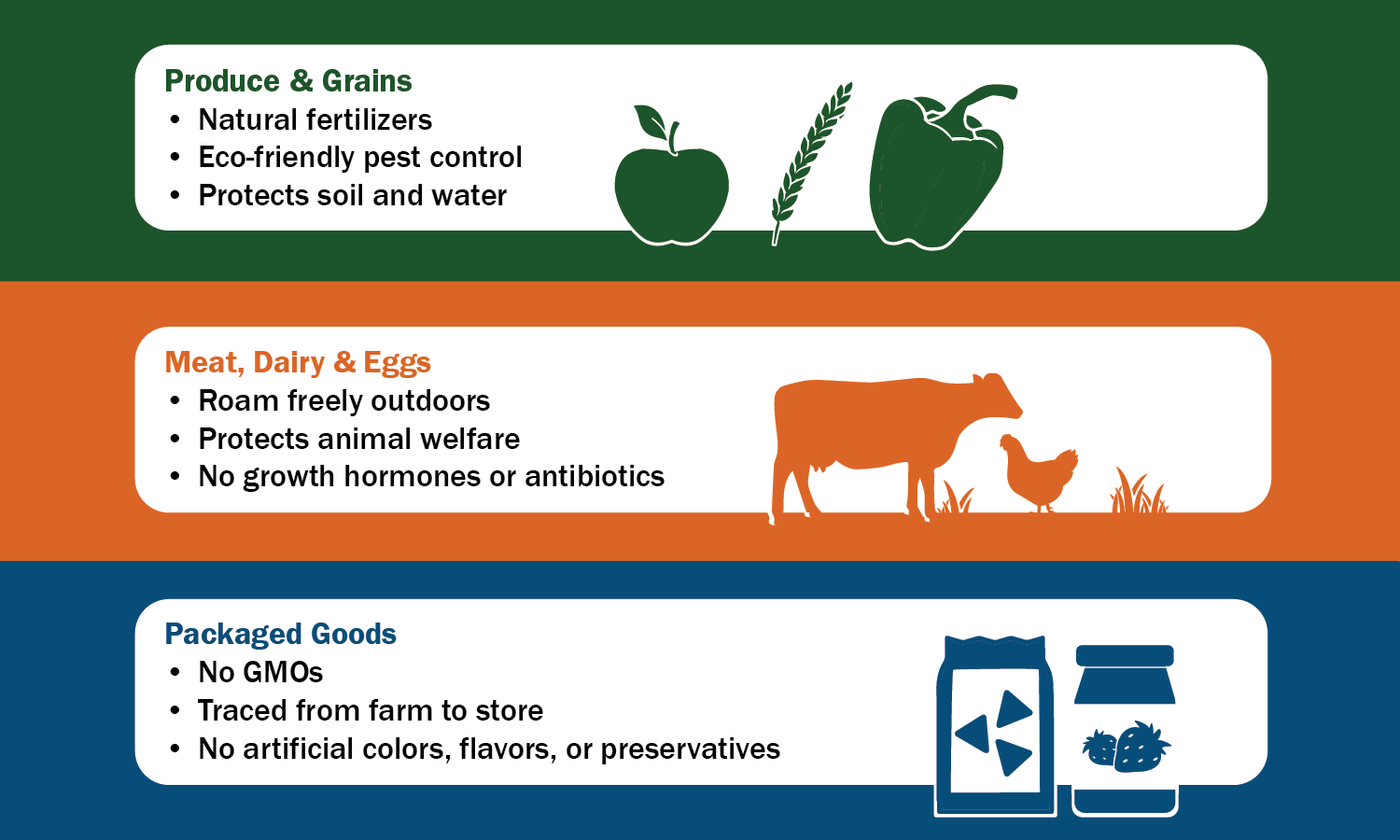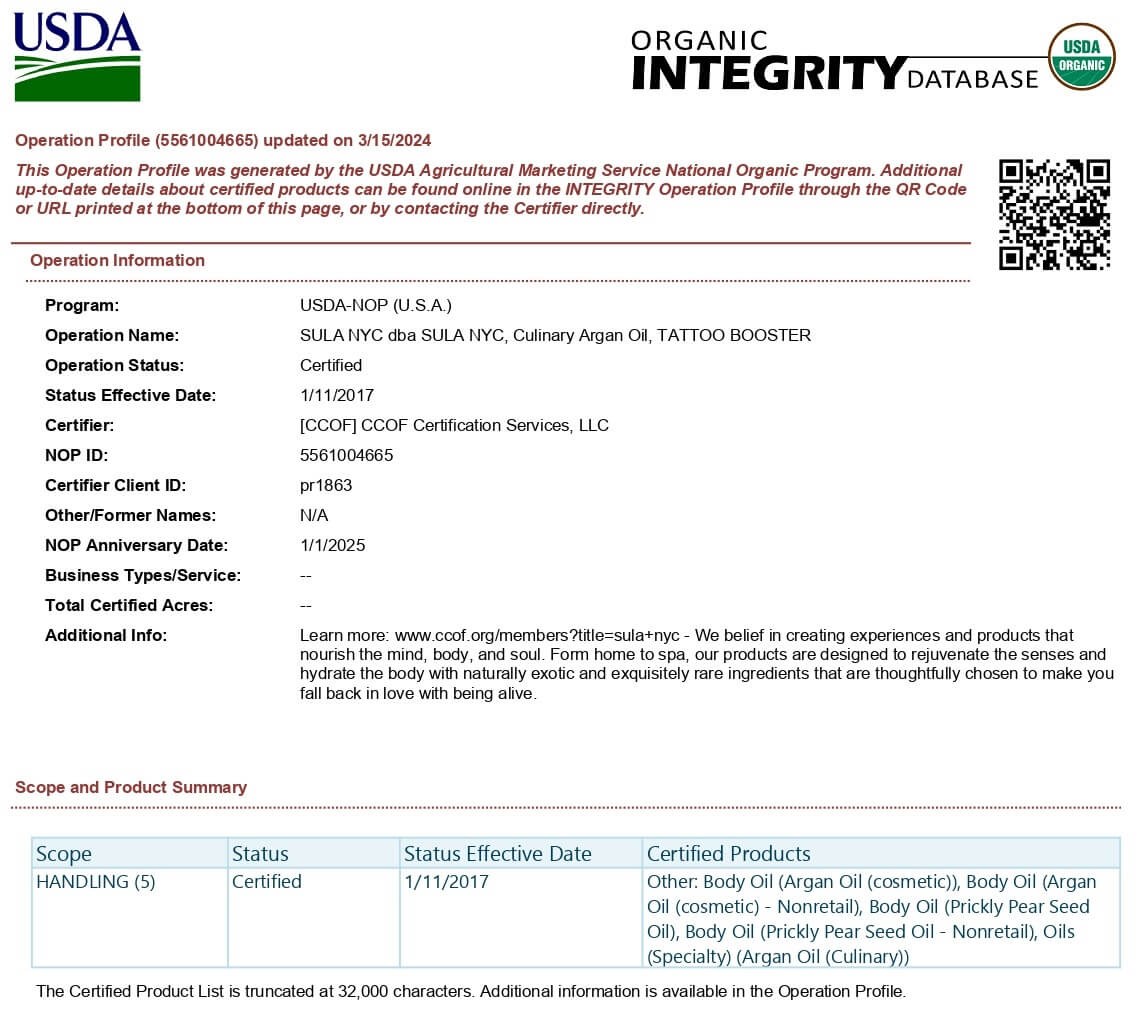The National Organic Program (NOP) is the federal regulatory program that develops and enforces standards for organically produced agricultural products sold in the United States. NOP also accredits third-party organizations to certify that farms and businesses meet the national organic standards. Recently, they created a toolkit to get the organic message out. This is the message:
Organic is…Protected by law
- The USDA organic label is the only government-backed marketing claim for organic food sold in the United States. Only foods produced according to the USDA organic standards can display the organic seal.
- USDA develops and strictly enforces specific standards for organic food to clarify what practices and inputs can and cannot be used in organic production and handling.
- The USDA organic seal is a registered trademark, which allows USDA to enforce criminal penalties against uncertified operations falsely using the seal to misrepresent products as organic. This protects the integrity of the organic seal and keeps fraudulent products out of the U.S. organic market.
- NOP investigates complaints and takes action against businesses that violate the regulations.
Organic is…Inspected by experts
- Organic farms and businesses are certified and inspected by USDA-accredited certifiers.
- Specially trained organic inspectors visit organic farms and businesses yearly to confirm they still meet the organic standards. Every organic operation is also subject to additional, unannounced inspections and testing.
- USDA regularly audits certifiers to make sure that they are correctly inspecting farms and upholding the integrity of the organic label.
- To become certified organic, operations go through a rigorous process to show that their practices follow the organic standards.

Organic is…Traced from farm to store
- The Strengthening Organic Enforcement rule increases the USDA’s ability to oversee and enforce the organic standards and trace organic products from the store all the way back to the farm. In our case: to Morocco.
- Farms and businesses must keep detailed records of the organic products they produce, buy, and sell. This allows businesses to choose trusted suppliers and verify that what they sell is organic.
- Certifiers audit organic supply chains to detect and deter fraud before it reaches stores.
- NOP manages the Organic INTEGRITY Database, which contains up-to-date and accurate information about organic operations. These systems and processes confirm that what consumers buy is truly organic.

Organic is…Shaped by public input
- Stakeholders and the public can provide feedback (public comments) on proposed regulations to shape final policy decisions.
- The organic standards are developed with recommendations from an advisory board—the National Organic Standards Board (NOSB)—composed of volunteers from the organic community.
- Stakeholders and the public can attend bi-annual NOSB public meetings and provide input to the NOSB.
